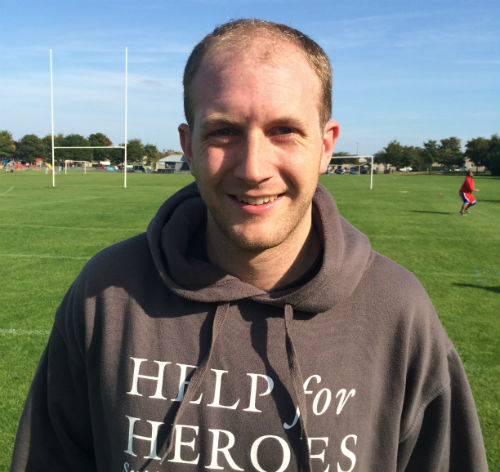86 students undergo cardiac tests
Scores of Edinburgh Napier students have been screened for potential heart problems in a special event at the university, three years after the death of a much-loved sportsman.
Funding for the tests came from the Robert Worboys Memorial Fund created in memory of a coach to the university’s American Football club, whose passing at the age of just 27 was caused by an undiagnosed cardiac issue.

Rob worked with Edinburgh Napier Knights’ defensive backs for three years and everyone at the club was devastated when he died in his sleep in January 2016 due to SADS or Sudden Arrhythmic Death Syndrome.
Following the death of the energetic and enthusiastic coach, Rob’s family created a fund to support a cardiac screening programme for people aged 14 to 35 via the charity Cardiac Risk in the Young (CRY).
Eighty-six students signed up to undergo free tests at the university’s Sighthill campus, organised by CRY and carried out by specialist staff, on Sunday May 19. They received an electrocardiogram (ECG), which examines the electrical activity of the heart, and a doctor studied the results as well as a personal and family history questionnaire.
Where a more detailed picture was required, medics carried out a follow-up echocardiogram; an ultrasound scan that looks at heart size, structure and blood flow.
Sudden death syndrome is an umbrella term for the many different causes of young sudden cardiac death. These conditions include thickening of the heart muscle or an abnormal structure of the heart, and irregularities of the impulses that control the rhythm of the heart.
CRY’s mission is to identify young people at risk from sudden cardiac death. It is those involved in sport who are more likely to be affected, if they have an underlying cardiac abnormality.
Pete Laird, head coach of Edinburgh Napier Knights and the university’s programme leader for sport, exercise and health science, said: “Rob was born in Surrey and grew up in Bedfordshire, but he became a hugely popular figure in the sporting life of our university.
“He was very popular with the players, in part because he was such a young man himself, and his positive energy and boundless enthusiasm meant the players would have run through brick walls for him.
“His sudden death was felt by everyone on the team. The reality of Sudden Arrhythmic Death Syndrome is that absolutely anyone can be at risk without even knowing it.
“If we can save one life from conducting these tests, it will have been an extremely worthwhile day.”